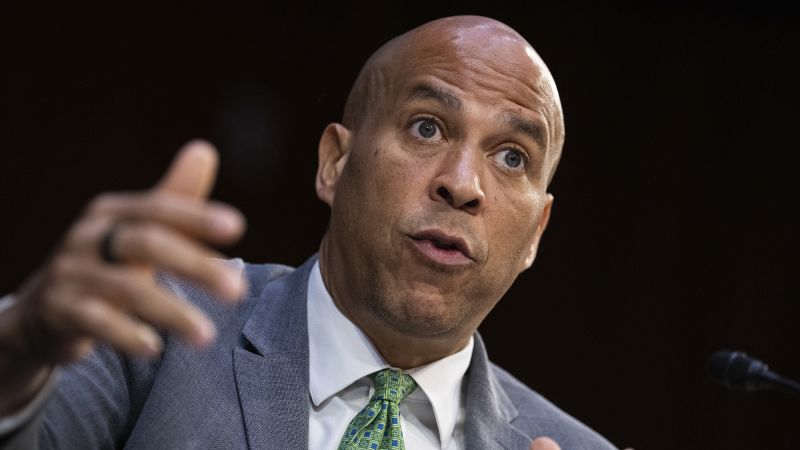A White House-supported effort to vote on a border security package in the Senate hit a snag when Senator Cory Booker announced that he would not support the legislation, highlighting divides within the Democratic Party. The bill, set to be voted on in the Senate, was already facing opposition from GOP members and disagreements within the Democratic Party. Democrats were hoping to pressure Republicans into taking action on border security, a crucial issue in an election year.
Booker’s decision not to support the bill underscores the challenges Democrats face in finding unity on the issue of border security. If more Democratic senators defect, it could complicate or weaken the party’s messaging efforts. Booker explained that he voted for a previous bipartisan immigration deal in February to prioritize ongoing discussions on border challenges but cannot support the current bill due to provisions that he believes go against American values.
In February, the previous bill as part of a broader bipartisan package that included foreign aid to US allies failed to advance, falling short of the required 60 votes to break the GOP filibuster. Notable Democratic senators, including Bob Menendez, Alex Padilla, Elizabeth Warren, and Ed Markey, as well as Independent Senator Bernie Sanders, opposed the measure. Senate Majority Leader Chuck Schumer also voted against it to use a procedural maneuver in the future.
Furthermore, the Biden administration suffered another setback when the Senate approved a measure to roll back energy efficiency standards for residential gas furnaces. The Energy Department rule, which required manufacturers to build furnaces that convert 95% of their fuel to heat, was fiercely defended by Democrats like Markey as essential for combating climate change. However, Republicans argued that the rules were too stringent and would be costly for consumers, with Senator Ted Cruz sponsoring the measure to overturn the rule.
Despite Democratic Senator Joe Manchin and independent Senator Kyrsten Sinema joining Republicans in supporting the measure, President Biden is expected to veto it, making it difficult for it to achieve the necessary two-thirds majority in each chamber to override the veto. The impact of these decisions on the broader legislative agenda remains to be seen, as both parties navigate the complexities of border security and energy efficiency measures in a divided Senate. CNN journalists Manu Raju, Ted Barrett, and Kristin Wilson contributed to the reporting on these developments.


